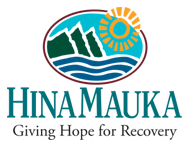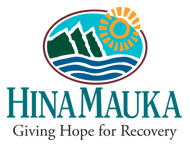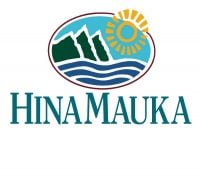Hope - Wahiawa
Drug Rehab Center in Wahiawa, Hawaii
Hope-Wahiawa is a behavioral health treatment and rehabilitation center located in Hawaii offering evidence-based treatment models and a variety of support groups and activities to help individuals and families struggling with addiction and substance abuse.
Multiple patients have reported Hope - Wahiawa as permanently closed.
Research other rehabs in Wahiawa, Hawaii, or get help finding an open facility.
About Hope - Wahiawa in Hawaii
Hope-Wahiawa is a behavioral health treatment and rehabilitation center located in Wahiawa, Hawaii. The multi-disciplinary staff at Hope-Wahiawa provides a wide variety of services to individuals and families struggling with addiction and substance abuse. Services offered at Hope-Wahiawa include evidence-based treatment models, such as Dialectical Behavioral Therapy, Cognitive Behavioral Therapy, and Utilization Review (UR) and Discharge Planning. Additionally, there are a variety of support groups and activities to promote healing, such as art therapy, yoga and mindfulness, and various educational classes.
At Hope-Wahiawa, clients can receive a tailor-made program of care, specially designed to meet their individual needs. Treatment typically includes individual and group therapy sessions, facilitated by psychologists and counselors, and the use of medication-assisted treatment (MAT) to manage withdrawal symptoms. The clinical team at Hope-Wahiawa is dedicated to providing compassionate and personalized care to help individuals and families learn to manage their addiction, as well as healthy relationship skills and life skills.
Hope-Wahiawa is proud to have earned the Joint Commission’s Gold Seal of Approval for Behavioral Healthcare Accreditation. The facility is also licensed and certified by the State of Hawaii Department of Health, and is accredited by the Commission on Accreditation of Rehabilitation Facilities (CARF). Hope-Wahiawa is dedicated to providing the highest quality of care to those struggling with substance abuse, and is proud to be a part of the larger behavioral health community in the State of Hawaii.
Genders
Ages
Modality
Additional
Accreditations

CARF
The Commission on Accreditation of Rehabilitation Facilities (CARF) is a non-profit organization that specifically accredits rehab organizations. Founded in 1966, CARF's, mission is to help service providers like rehab facilities maintain high standards of care.
Conditions and Issues Treated
Levels of Care Offered
This center offers a variety of custom treatment tailored to individual recovery. Currently available are Aftercare Support, Detox, Drug Rehab, Inpatient, Intensive Outpatient, Outpatient, Residential, Sober-Living / Half-Way, with additional therapies available as listed below.
An addict may have to go through alcohol or drug withdrawal. While detox may be uncomfortable, it is not life-threatening. Detoxification allows the addict to rid the body of all traces of drugs or alcohol and gives the addict a clean slate for their recovery. In an inpatient or outpatient setting, detox can be managed medically.
Inpatient treatment for alcoholism or drug addiction is an option that provides the addict with a supportive environment in which they can stop using. This type of treatment is appropriate for addicts that are most in need of intensive care and supervision. This includes those who were unable to quit on their own, those who need more structure than they can get in outpatient treatment.
Intensive outpatient treatment is a type of comprehensive addiction care. Unlike conventional residential treatment programs, the patients live at home during the recovery process. This means that one can continue working and caring for their families. These also allow people to keep pursuing their studies while also working on their sobriety.
Outpatient treatment can help one transition to normal life from the round-the-clock supervision and treatment available during inpatient treatment. It is an excellent tool to ensure long-term recovery. However, it is essential to note that intensive outpatient treatment in itself does not remove patients from the real-world setting. This means there’s always a higher risk of coming across environmental triggers. To further prevent relapse, an outpatient treatment center should be able to provide ongoing support services.
Once the patient is enrolled in an intensive outpatient treatment program, they will be expected to attend therapy and group meetings daily for a stipulated period. The frequency and duration of each session will depend on the patient’s needs and level of addiction. This can help curb the habit and deal with underlying issues that led to it. Most of these professional treatments are designed to allow patients to structure their daily schedules in a way that is conducive to recovery.
“Outpatient treatment is ideal for those who have a lower intensity addiction. It’s also suitable for those with a supportive environment and those on a tight budget.
Outpatient treatment can be considered the lowest intensity level of addiction treatment. It is ideal for early phase addiction or lower intensity addictions. It may involve weekly sessions instead of daily. Peer group support, 12-step programs, and individual counseling may still be used and anti-addiction medication.
Sober living homes are halfway houses where people can stay for a while and stabilize themselves—no drinking or drugging, paying rent/bills, etc. There is no minimum or maximum stay, but as long as you follow these simple guidelines, it’s an excellent chance to move forward into sobriety!
For many, this is a new beginning, a reset. The opportunity to establish new routines and healthy habits that will result in long-term sobriety is given to those who have lost everything due to addiction. It’s also common for people to move from one sober living home to another, each step closer to a drug and alcohol-free life.
Residential treatment programs are those that offer housing and meals in addition to substance abuse treatment. Rehab facilities that offer residential treatment allow patients to focus solely on recovery, in an environment totally separate from their lives. Some rehab centers specialize in short-term residential treatment (a few days to a week or two), while others solely provide treatment on a long-term basis (several weeks to months). Some offer both, and tailor treatment to the patient’s individual requirements.
Aftercare support is vital to those who have completed a drug or alcohol treatment program. This support comes in individual and family counseling, treatment of psychiatric and other medical conditions, and medications to reduce cravings. It helps recovering addicts adjust to normal day-to-day activities and can last for a year or longer.
The majority of drug and alcohol addicts who receive aftercare treatment do not relapse. It is estimated that without aftercare, the relapse rate will be between 70 to 90 percent for most people. Aftercare is the final stage in addiction recovery, but it will also help maintain sobriety if relapse does occur.
Therapies & Programs
No single treatment works for all addicts; therefore, the goal of treatment and therapy should be to find what works best for each individual. Some people requiring addiction treatment may only need a few weeks of inpatient care. Others will require long-term residential care. Tolerance and withdrawal levels vary from person to person and thus affect the intensity of the treatment needed.
If an individualized approach to treatment and therapy is not offered, addicts may fail to reap benefits from their efforts. Professionals must customize plans according to their patient’s needs, limitations, and strengths. The goal of all forms of addiction treatment should be for addicts to find healthy ways to cope with their addiction and its underlying causes.
The therapies usually include siblings, children, and parents who are involved in their daily lives. These sessions are vital because they address past issues that may have hampered an addict’s or alcoholic’s recovery and provide support at a crucial time!
One of the most critical aspects of family therapy is helping addicts’ loved ones see their situation in a new light. It’s also one of the most challenging things a family can do when a loved one struggles with addiction or alcoholism.
Group therapy is held in a safe, controlled setting where patients can feel comfortable sharing their struggles and gaining perspective through shared conversations. It takes place in a group rather than one on one to prevent feelings of isolation or being unique in their situation while creating an environment for addicts at Hope - Wahiawa to develop fellowship, accountability, and support. Group therapy is an important tool in recovery that prevents cravings that prompt a return to active addiction.
Cognitive-behavioral therapy is a talking-based method that helps people struggling with addiction replace destructive behaviors with healthier ones. CBT also helps them identify the underlying thoughts and beliefs that cause these behaviors in the first place and ways to control those thoughts and feelings. It can be administered as a holistic therapy or as part of combination therapy and—as opposed to turning to drugs and alcohol—helps addicts learn how to respond to negative thoughts instead.
Payment Options Accepted
For specific insurance or payment methods please contact us.
Is your insurance accepted?
Ask an expert, call (888) 674-0062
Hope Associated Centers
Discover treatment facilities under the same provider.
Learn More About Hope Centers
Additional Details
Specifics, location, and helpful extra information.
Wahiawa, Hawaii 96786 Phone Number(808) 380-3338 Meta DetailsUpdated November 25, 2023
Staff Verified
Hope - Wahiawa Patient Reviews
There are no reviews yet. Be the first one to write one.
Wahiawa, Hawaii Addiction Information
Hawaii has one of the highest rates of drug abuse in the nation. Methamphetamines and marijuana are the most common drugs involved in drug-related crimes in Hawaii. The state loses $500 million every year due to methamphetamine abuse, according to the Hawaii Meth Project. More than 1 million prescriptions for prescription drugs are given out every year.
The Wahiawa, Hawaii drug addiction problem is unfortunately quite severe. According to the National Institute on Drug Abuse, in 2016, over 9% of Wahiawa residents reported using illicit drugs in the past month, and over 17% reported binge drinking. This indicates a serious need for drug rehab services in Wahiawa. Most drug rehab centers in Wahiawa, Hawaii, offer a combination of therapies and counseling.
Treatment in Nearby Cities
- Aiea, HI (10.2 mi.)
- Kula, HI (120.2 mi.)
- Waimea, HI (183.5 mi.)
- Honolulu, HI (17.2 mi.)
- Hana, HI (141.3 mi.)
Centers near Hope - Wahiawa
The facility name, logo and brand are the property and registered trademarks of Hope - Wahiawa, and are being used for identification and informational purposes only. Use of these names, logos and brands shall not imply endorsement. RehabNow.org is not affiliated with or sponsored by Hope - Wahiawa.







